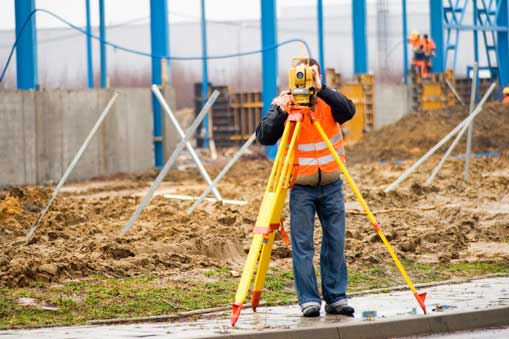Careers in Science: Surveyor

What Does A Surveyor Do?
Surveying and land surveying is the measurement and mapping of our surrounding environment using mathematics, specialised technology and equipment. Surveyors measure just about anything on the land, in the sky or on the ocean bed. Land surveyors work in the office and in the field – from suits to boots. Out in the field, they use the latest technology such as high order GPS, Robotic Total Stations (Theodolites), and aerial and terrestrial scanners to map an area, making computations and taking photos as evidence.
What Are The Duties Of A Surveyor?
The duties of a surveyor include:
• Research projects and doield studies before measuring takes place
• Take precise measurements
• Document elevation changes and heights
• Double-check measurements
• Determine borders and boundaries
• Travel between sites
• Document measurements and capture info on computers
• Work out detailed mathematical formula
• Prepare plans to show boundaries with measurements including distance and heights
• Work with GPS devices, scanning tools and other technical instruments
How Much Does A Surveyor Get Paid?
Being a member of a recognised profession the quantity surveyor can expect an income in keeping with the status of the profession. Initiative, enthusiasm, commitment to personal skills enhancement and hard work result in substantial financial reward. Newly qualified surveyors can earn between £20,000 (R283 122.00) and £25,000 (R353 902.00) a year. Chartered land surveyors can earn around £30,000 (R424 683) to £40,000 (R566 255.00). Those at senior management level or partners, may earn up to £70,000 (R990 927).
What Are The Education And Training Requirements?
The educational requirements needed to become a land surveyor can vary from licensing body to licensing body, and from employer to employer. The most common education needed to become a land surveyor is a four-year bachelor’s degree in the field of Geomatics Engineering. You may also choose to pursue an education in a geomatics program at a two year diploma granting college. If you choose this route, you will be qualified to work entry-level unlicensed surveying jobs, and will need to pass additional exams to go further in the field.
What Are The Skills And Personal Traits Of A Surveyor?
As a land surveyor, you will need:
• An understanding of surveying technology and CAD programs
• Excellent science, maths and engineering skills
• A creative approach to problem solving
• The ability to work to a high degree of accuracy
• The ability to analyse and interpret graphical data
• Knowledge of planning and environmental regulations
• Knowledge of health and safety
• Strong communication, negotiating and presentation skills
• The ability to prioritise and plan work effectively
• Good teamworking skills.





